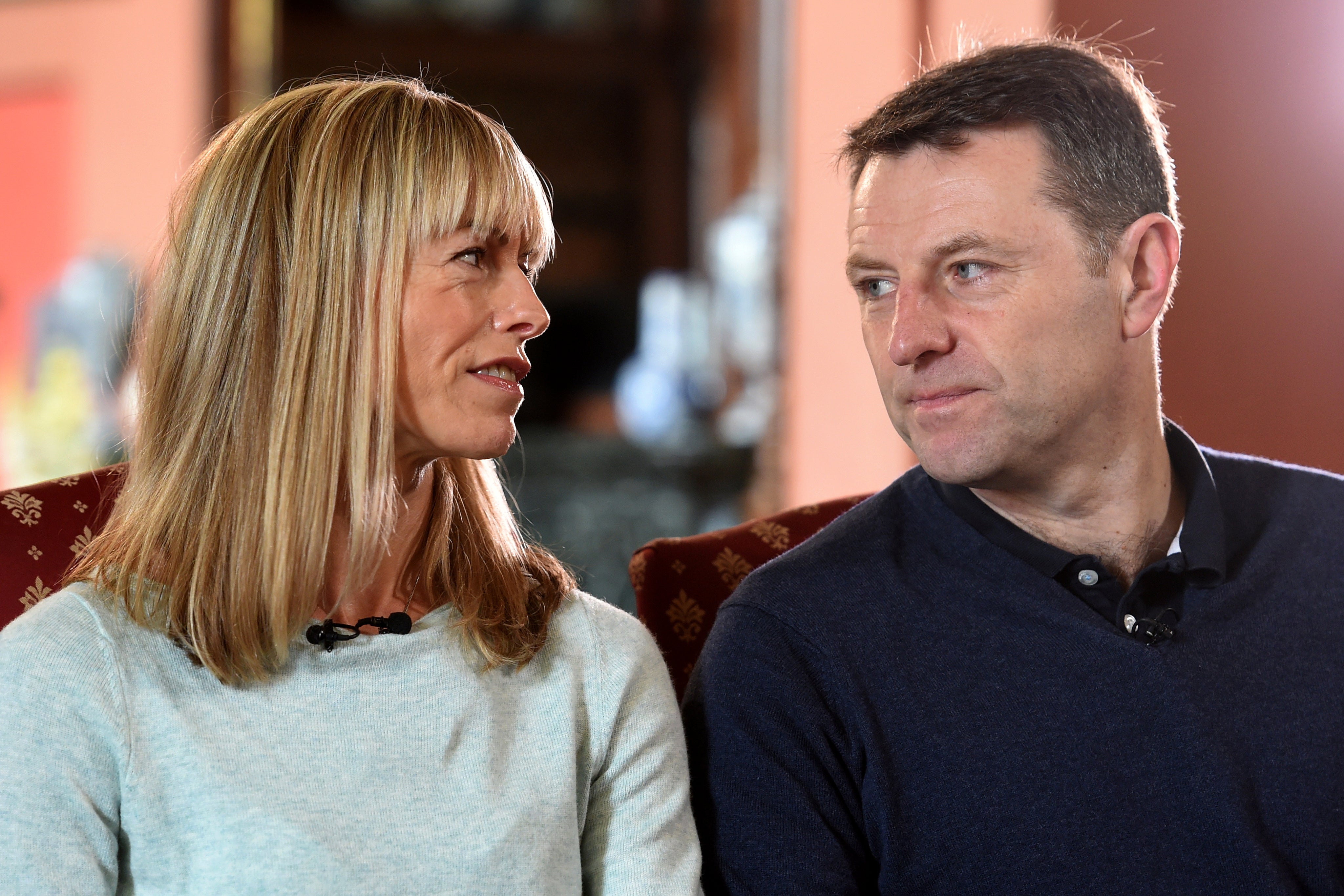
Victims of press intrusion, including the father of missing Madeleine McCann, said they have “absolutely no confidence” in the Government after the announcement that it was formally closing the Leveson Inquiry.
Culture Secretary Matt Hancock told Parliament yesterday that the “terms of reference” for the next part of the inquiry had “largely been met” and that his focus was now on challenges facing the news industry.
Gerry McCann and his wife Kate (pictured) brought successful libel actions against numerous newspapers over various false claims, including that they withheld evidence from police over their daughter’s disappearance.
The Daily Express and Daily Star both published a front page apology to the McCanns in 2008 after running a number of stories wrongly implying that they were responsible for Madeleine’s death.
The McCanns also testified at part one of the Leveson Inquiry about media intrusion into their lives and what they described as the “disgusting” tabloid stories following Madeleine’s disappearance in Portugal in 2007.
Her father, Gerry McCann said: “The second part of the Inquiry is vital to investigate the corruption between politicians, the press and the police.
“Instead of proceeding with it as promised, this Government has abandoned its commitments to the victims of press abuse to satisfy the corporate interests of the large newspaper groups.
“This Government has lost all integrity when it comes to policy affecting the press.”
Jacqui Hames, the former detective and Crimewatch presenter whose phone was hacked by Trinity Mirror journalists, said she recalled meeting then Prime Minister David Cameron over the phone-hacking scandal.
She said: “I sat in a room with former Conservative Prime Minister David Cameron while he made promises directly to me, and other victims, that the Conservative Party would get to the bottom of press and police corruption by completing the Leveson Inquiry.
“Today this Government have made a clear choice to side with the unaccountable and unelected press barons over the rights of ordinary people in this country.
“I, and other victims of press abuse and intrusion, have no absolutely no confidence in this Government as they seem incapable of putting the rights of the people they serve over self-interest”.
Press reform group Hacked Off has now launched a petition calling on the Government to “honour the promises it made to the public, to Parliament and to victims of press abuse” and go ahead with the Leveson Two.
The second part of the inquiry was set to examine wrongdoing in the press and the police, including the failure of the first police investigations, corporate governance issues and implications for police and press relations.
Sir Brian Leveson has been consulted about the decision to close the inquiry. Hancock said Leveson “agrees that the inquiry should not process on the current terms of reference”, but should continue “in an amended form”.
Hacked Off director Dr Evan Harris said: “This is probably the first time that a Government has over-ruled the views of the judicial chair of a statutory inquiry by cancelling an inquiry against his will.
“If this was any other industry the press would demanding that inquiry must happen immediately, but when it is about them they applaud the cover-up of a cover up.
“The Government will find it very difficult to maintain this cover-up for long.”
Hancock said there had been “extensive reforms to policing practices” and “significant changes to press self-regulation” since Leveson part one with the establishment of the Independent Press Standards Organisation.
The Government also said it will repeal Section 40 of the Crime and Courts Act 2013, which would have forced newspapers not signed up to a Royal Charter regulator, which currently only recognises Impress, to pay both sides’ legal fees in privacy and libel battles, win or lose.
Hancock said the costs would “exacerbate the problems the press face rather than solve them”.
But Bristol landlord Christopher Jeffries, who was libelled by the press when he was wrongly accused of the murder of Joanna Yeates in 2010, said the decision would mean it will be harder for victims to access justice.
Jeffries said: “The failure to introduce Section 40 means that many ordinary people who are victims of press abuse will continue to be denied access to justice, while only the wealthy will be able to take newspapers to court to obtain justice.
“This law was passed by an overwhelming majority of the House of Commons with support across all parties.
“This decision by the Government to ignore that vote shows contempt for Parliamentary democracy and puts the interests of press barons above the interests of ordinary people.”
Picture: Reuters/Joe Giddens/Pool
Email pged@pressgazette.co.uk to point out mistakes, provide story tips or send in a letter for publication on our "Letters Page" blog
